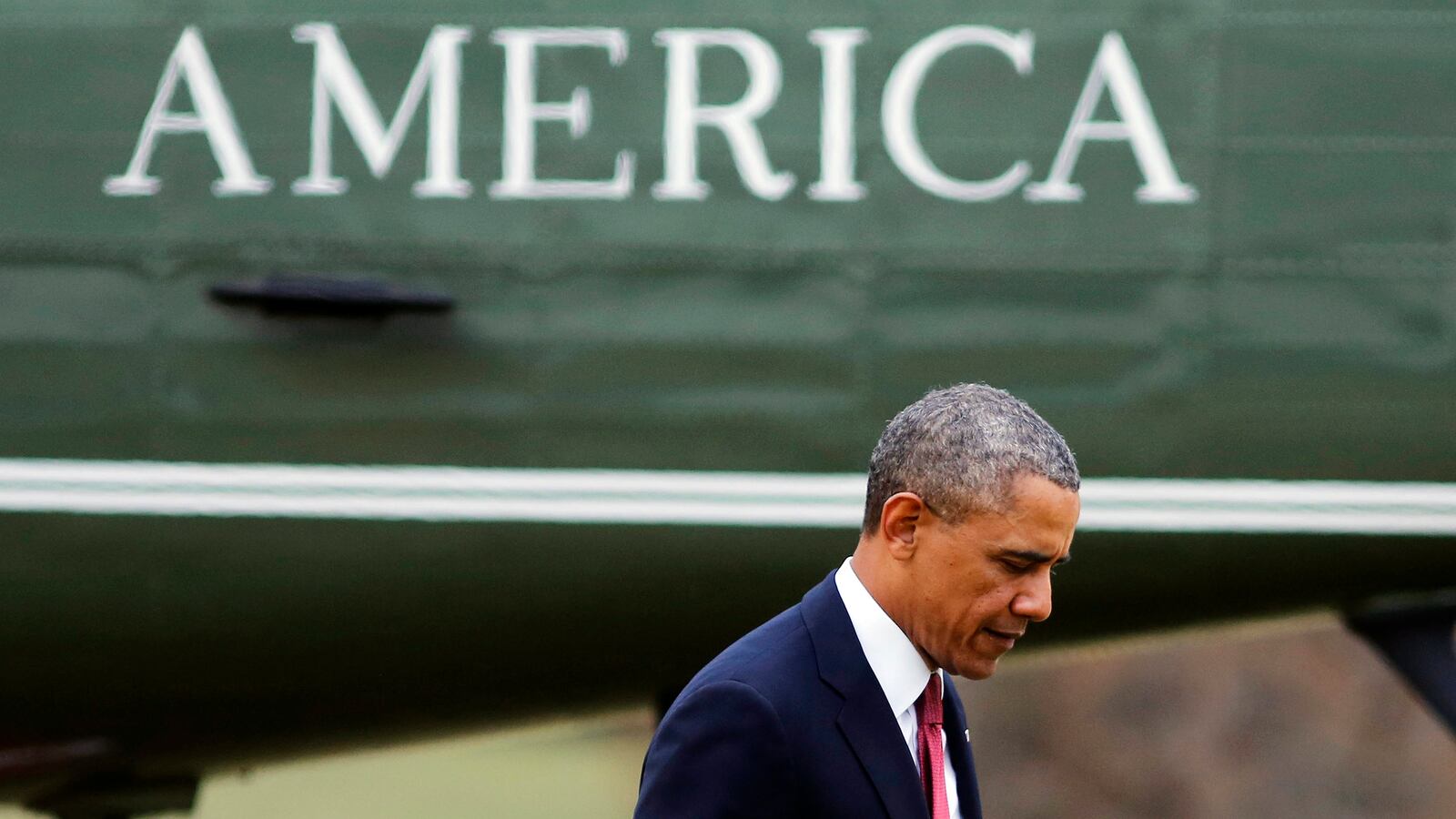
If there’s anything especially interesting about David Remnick’s profile of Obama, it’s the extent to which the president is a little more forthcoming about race and politics than he’s been in the past. I’ve already mentioned his take on racism and presidential approval, but he also comments on the racially disparate enforcement of our marijuana laws. But there, he missteps. It’s not that he dismisses the clear disparities of arrest and prosecution between blacks, Latinos, and whites, but that he collapses them into symptoms of economic inequality:
What clearly does trouble him is the radically disproportionate arrests and incarcerations for marijuana among minorities. “Middle-class kids don’t get locked up for smoking pot, and poor kids do,” he said. “And African-American kids and Latino kids are more likely to be poor and less likely to have the resources and the support to avoid unduly harsh penalties.”
The ACLU’s widely-cited report on marijuana laws is useful here, because this is wrong. According to the report, “Racial disparities in marijuana possession arrests exist regardless of county household income levels, and are greater in middle income and more affluent counties.” That’s right: The wealthier the area, the greater the disparity in marijuana arrests. To wit:
In the counties with the 15 highest median household incomes (between $85K–$115K), Blacks are two to eight times more likely to be arrested for marijuana possession than whites. In the 15 counties in the middle of the household income range (between $45K–$46K), Blacks are over three times more likely to be arrested for marijuana possession than whites. In the poorest 15 counties (median household incomes between $22K–$30K), Blacks are generally 1.5 to five times more likely to be arrested.
Yes, it’s true that—overall—you’re more likely to be arrested if your poor than if you’re rich, but that doesn’t erase the reality of the racial disparity. And indeed, for almost any given social or economic inequality, you see this phenomenon play out: The poor are worse off than the rich, and blacks are worse off than whites, even after you adjust for income. To take housing as an example, low-income Americans live in worse neighborhoods than their middle or high-income counterparts. But African Americans live in neighborhoods that are substantially poorer and worse-off than their counterparts at all income levels.
Put simply, black people still face unique and persistent disadvantages. And if we’re going to talk about inequality and its amelioration, then this needs to be in the conversation, lest we leave them to fester. In fact, we already know what that looks like. The Medicaid expansion in the Affordable Care Act is supposed to extend health insurance to millions of low-income people who don’t qualify for subsidies. But, because of the Supreme Court’s ruling on the law, this is only possible if each state makes the decision for itself.
In theory, no state would turn down the federal government’s promise of new funding. In practice, Republican states have done exactly that. The people hurt most by this are low-income blacks, and why wouldn’t they be? The region is ruled by a rigid anti-government conservatism that has its roots in slavery and white supremacy. Indeed, if Southern states have large populations of poor blacks who are harmed by the rejection of Obamacare, it’s because—for the bulk of their history—they were explicitly organized to maintain black disadvantage.
Without targeted interventions, these poor blacks are denied a key benefit, which will leave them further behind compared to their white counterparts.
To his credit, Obama seems sees this. As he says to Remnick:
[I] think it’s important for conservatives to recognize and answer some of the problems that are posed by that history, so that they understand if I am concerned about leaving it up to states to expand Medicaid that it may not simply be because I am this power-hungry guy in Washington who wants to crush states’ rights but, rather, because we are one country and I think it is going to be important for the entire country to make sure that poor folks in Mississippi and not just Massachusetts are healthy.”
But you won’t see this in his public remarks. For instance, in the “inequality speech” he gave last month, he explicitly disavowed the idea that race is a salient dimension of disadvantage:
The opportunity gap in America is now as much about class as it is about race. And that gap is growing. So if we’re going to take on growing inequality and try to improve upward mobility for all people, we’ve got to move beyond the false notion that this is an issue exclusively of minority concern.
To be fair to President Obama, it’s not just him; this is the glaring flaw in the Democratic Party’s newfound focus on income inequality. There’s no appetite for an analysis of racial inequality; no interest in policies that would help the specific problems of communities harmed by decades of discrimination and anti-black policymaking. There just seems to be a general sense that all people will be helped equally by policies to combat inequality.
The catastrophic joblessness among African Americans should be enough to throw that idea in the ash heap of history, but—unfortunately—it isn’t.
It’s hard to overstate the irony of this: African Americans aren’t just key to Democratic national ambitions, they’re crucial. If Democrats hold on to the Senate this year, it will be because blacks came out in force to support incumbents in Louisiana and North Carolina. And if Democrats manage to win the race in Georgia, it will be for the same reason. Likewise, there’s a strong chance that black turnout will decide the 2016 outcome—and thus the election—in states like Ohio, Pennsylvania, Virginia, and Florida.
You would think this fact—that Democrats owe their national viability to the overwhelming support of black voters—would guarantee a nod to the particular challenges facing the African American community. The unfortunate fact, however, is that you’d be wrong.






